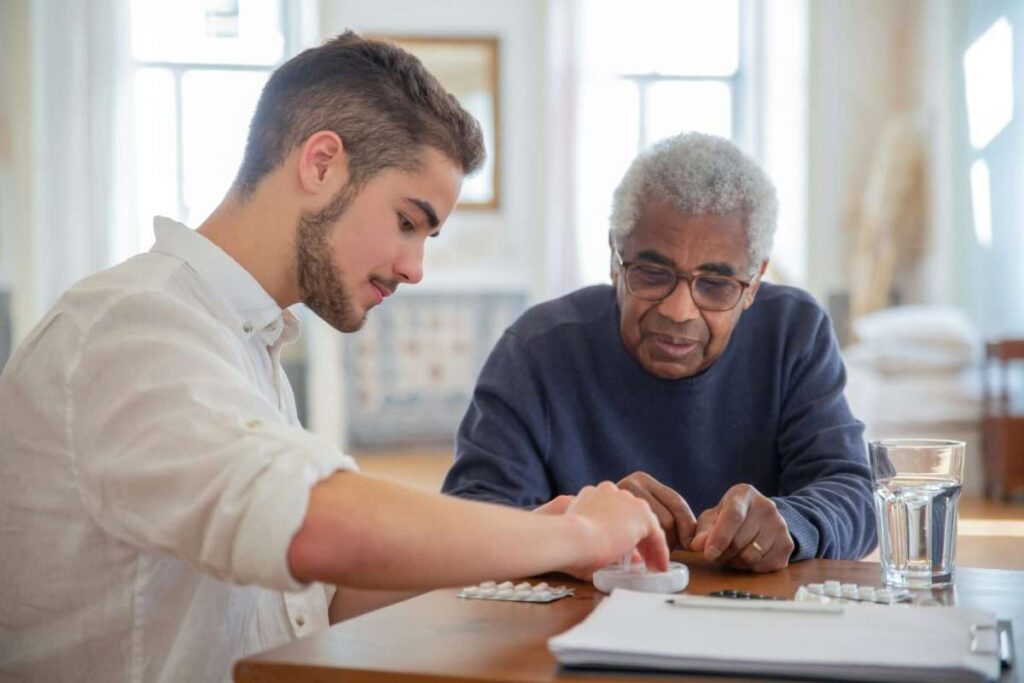When Isabel Tom was growing up, she didn’t think much about having her grandparents around every day. They walked her to school, greeted her when she came home, and quietly slipped into the rhythm of her daily life.
“As a kid, they were just kind of there,” she remembers. “I didn’t think it was special until much later.”
During an interview with Lianne Castelino of Where Parents Talk, Tom, now a mom of three and author of The Value of Wrinkles, sees those everyday moments with her grandparents as one of the greatest gifts of her childhood. And she believes grandparents—and older adults in general—have something powerful to offer today’s children that many parents overlook.
The Extra Layer Every Child Needs
“Grandparents provide an extra layer of love, attention, availability, adoration…that helps our kids to develop greater resiliency in life,” Tom explains.
It’s not about fancy trips or extravagant gifts. It’s about presence. Grandparents aren’t rushing from meeting to meeting or juggling an endless to-do list. They have time. And that time becomes a cushion of security for kids who are growing up in an often fast-paced, high-pressure world.
For Tom, knowing she was cherished—without having to earn it—built a foundation of confidence she carries to this day.

How Grandparents Shape Confidence and Character
Grandparents aren’t just another set of babysitters. Their influence runs deeper.
-
They create a safe space for kids to practice social skills—even when kids say the wrong thing.
(“What happened to your hair?” becomes a moment of laughter, not shame.) -
They share life stories that give perspective, reminding kids that resilience, gratitude, and perseverance matter more than perfection.
-
They offer unconditional love, teaching kids they are valued simply for who they are.
“When my kids hear their grandmother talk about growing up without indoor plumbing,” Tom says, “they realize how fortunate they are. That perspective is priceless.”
Parents as Connectors
Kids may not always know how to connect with grandparents on their own. That’s where parents come in.
“Parents are the playmakers,” Tom explains. “We need to guide kids through these relationships—just like we’d guide them in making a new friend.”
That can be as simple as:
-
Explaining why Grandpa uses a cane or Grandma needs extra rest
-
Prompting kids to ask questions about their grandparents’ childhood
-
Encouraging kids to share their own stories, drawings, or jokes
Tom even created a Grandkid Investigator Kit—a fun set of “missions” that help kids discover surprising facts about their grandparents. “It’s about helping them see their grandparents as people, not just gift-givers.”
When Grandparents Are Far Away
What if your family doesn’t live close to grandparents—or doesn’t have them at all?
Tom encourages parents to look beyond their family tree. “There are older adults all around us—neighbours, people at the grocery store, members of our community,” she says. Teaching kids to notice, respect, and engage with them can be just as impactful.
Small acts of kindness—like carrying groceries for an older neighbour—can spark meaningful conversations and teach kids empathy and respect across generations.
An Irreplaceable Gift
Looking back, Tom knows the love her grandparents gave her was one of the greatest advantages of her childhood. And it’s something she’s determined to pass on to her own kids.
“They provide an extra layer of love and attention that helps kids thrive,” she says. “It’s what allows them to develop confidence and resilience—even when life gets hard.”
In a culture that often undervalues age, parents have the power to remind their kids of a simple truth: grandparents and older adults aren’t just part of the family—they are an irreplaceable gift.
Related links


